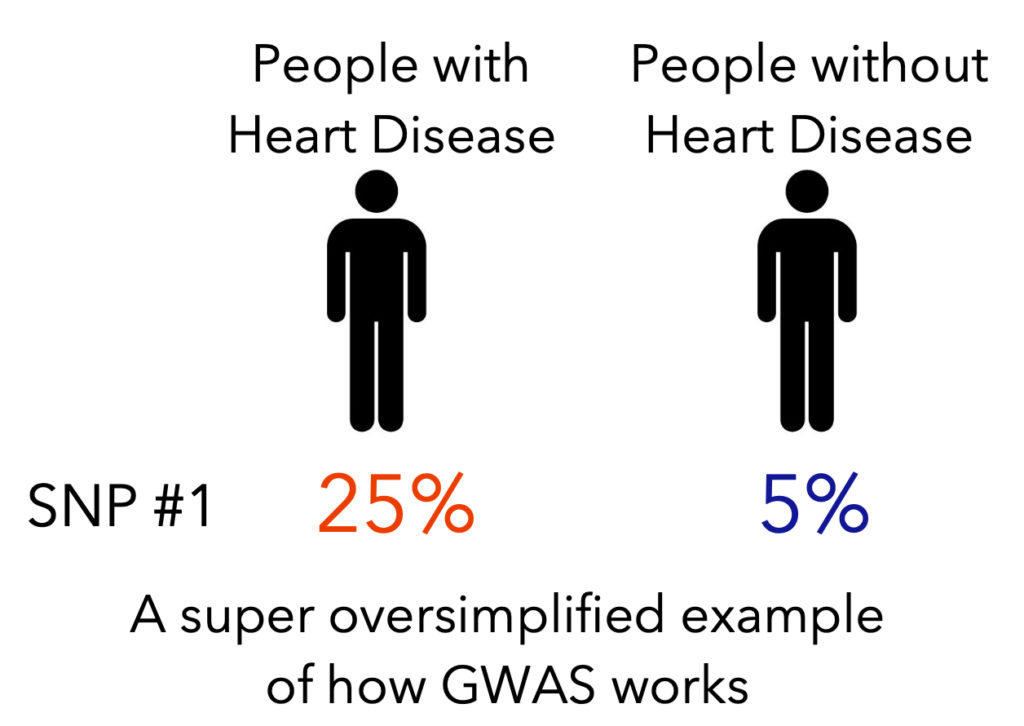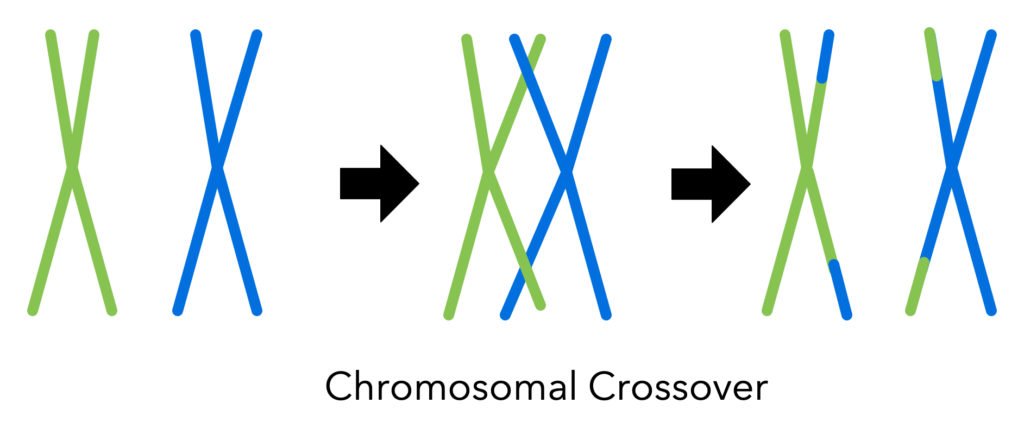What are SNPs?
Many genetic testing companies claim to be able to decipher your health risks by analyzing your SNPs. Let’s explore what SNPs are and how they can be useful.
What are SNPs?
SNPs (pronounced “snips”) are Single Nucleotide Polymorphisms. A nucleotide is a letter of DNA that makes up your genetic code (an A, T, C or G). Polymorphisms are changes in the genome that occur relatively frequently (in greater than 1% of the population). To put it simply, a SNP is just a single letter in the genetic code that tends to vary between people. These changes aren’t necessarily bad. In fact, they’re seen so commonly in people that it’s unlikely that they have much of an affect on health.

How are SNPs useful?
SNPs are useful precisely because they vary between people so much. This allows us to use them for lots of different purposes. DNA identity testing in forensics depends on each person having a unique genetic “fingerprint” of polymorphisms. Ancestry testing is possible because people in similar populations tend to have similar SNPs. The more closely related two people are, the more SNPs they will have in common. Polymorphism make paternity testing possible, too!
SNPs and GWAS
Many of the health associations of individual SNPs come from Genome Wide Association Studies (GWAS, pronounced “Gee-Woz”). In these studies, scientists look at a bunch of people with a particular trait or condition and see what SNPs are more common in those people. For example, if a study is looking for genetic causes of heart disease, they may look at thousands of SNPs in people both with and without heart disease. If any SNP stands out as being much more common in the affected group than in the non-affected group, we can say that the SNP is “associated” with that disease. But just because a SNP is associated with a condition does not mean that it causes that condition. Many people may carry that SNP and never be affected with the condition, and many people may have the condition without carrying that SNP.

Scientists often find the SNPs identified in GWAS studies useful, not to predict the health of individual people, but to lead us to new locations in the genome to study. If a SNP is found more often in people with heart disease, perhaps it’s because that SNP is closely “linked” to a gene that’s important to heart health.
What “Linked” Means in Genetics
When geneticists say two things are “linked,” they’re referring to how closely they are physically located to each other on a chromosome. Each person gets half their chromosomes from their mother, and the other half from their father. But before mom or dad deal those chromosomes out to their kid, they shuffle the deck first by a process called “crossover.” The 2 copies of their chromosomes literally stick together and swap material, so the chromosome you end up with isn’t a perfect replica of one of the copies your parent had; it’s a mix of pieces from both of their copies.

The closer two things are on a chromosome, the more likely they’ll stay together during crossover. The further apart they are, the more likely they’ll get separated and won’t be passed down together. Things that are very closely linked tend to stay together after many generations. One particular SNP may have absolutely nothing to do with heart health except for the fact that it keeps getting passed down with something else that is important.

Testing Your Own SNPs
The usefulness of SNP testing to learn about your own health is limited. Common conditions, like high blood pressure, asthma, or diabetes, are complicated and don’t have a single cause. Lots of factors, both genetic and environmental, have to come into play in order for an individual to be affected. SNPs can help point scientists to new places in the genome to study, but they aren’t necessarily the best predictors when it comes to an individual’s risk. Other factors such as lifestyle or family history often have a bigger impact on your health than the presence of a single SNP. It’s best to take SNP results that claim to predict risk for complex diseases with a grain of salt. (Unless you have high blood pressure. Then maybe skip the salt.)
Enjoyed this post? Like us on Facebook and follow me on Instagram!
